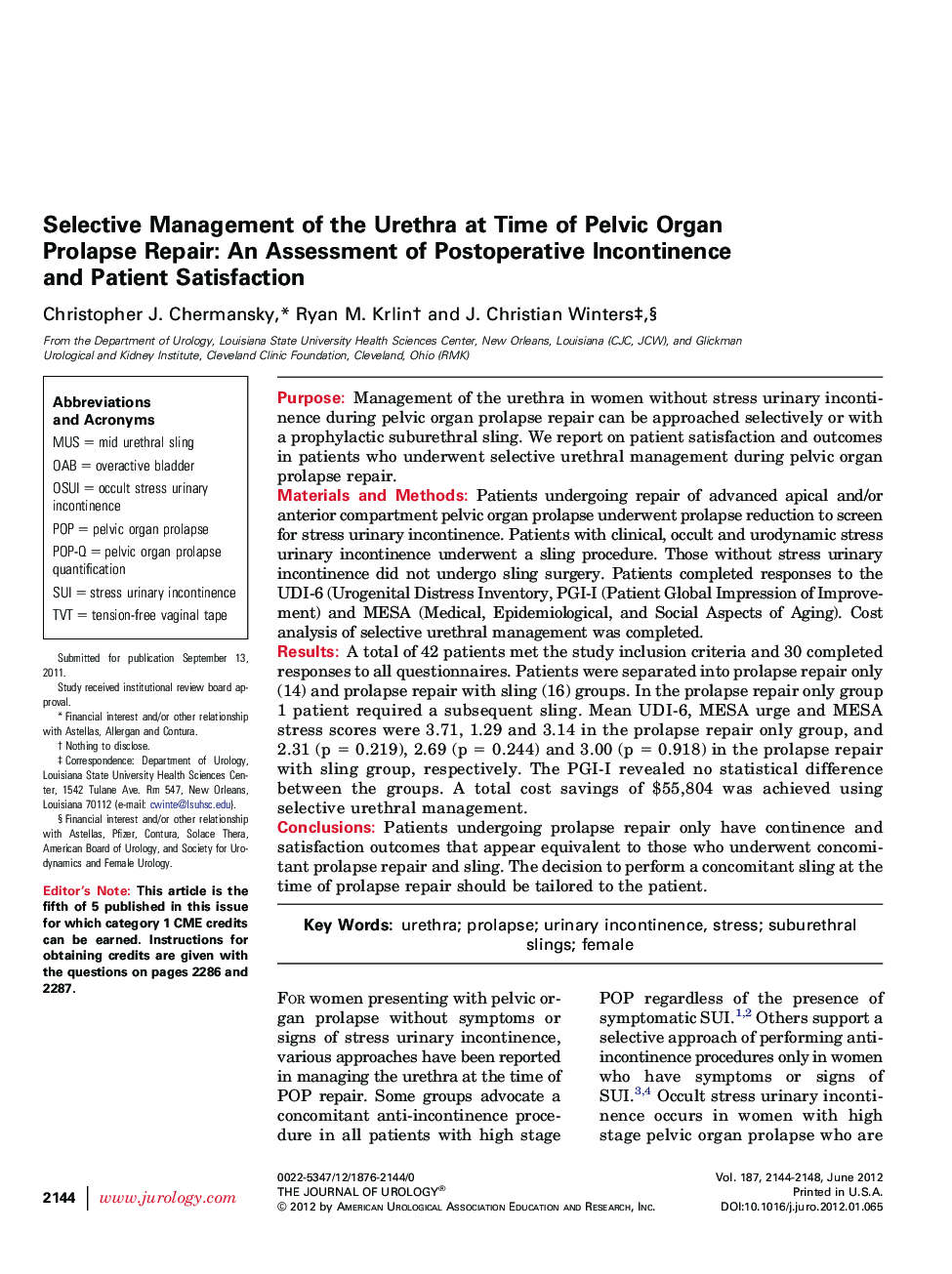| Article ID | Journal | Published Year | Pages | File Type |
|---|---|---|---|---|
| 3867800 | The Journal of Urology | 2012 | 5 Pages |
PurposeManagement of the urethra in women without stress urinary incontinence during pelvic organ prolapse repair can be approached selectively or with a prophylactic suburethral sling. We report on patient satisfaction and outcomes in patients who underwent selective urethral management during pelvic organ prolapse repair.Materials and MethodsPatients undergoing repair of advanced apical and/or anterior compartment pelvic organ prolapse underwent prolapse reduction to screen for stress urinary incontinence. Patients with clinical, occult and urodynamic stress urinary incontinence underwent a sling procedure. Those without stress urinary incontinence did not undergo sling surgery. Patients completed responses to the UDI-6 (Urogenital Distress Inventory, PGI-I (Patient Global Impression of Improvement) and MESA (Medical, Epidemiological, and Social Aspects of Aging). Cost analysis of selective urethral management was completed.ResultsA total of 42 patients met the study inclusion criteria and 30 completed responses to all questionnaires. Patients were separated into prolapse repair only (14) and prolapse repair with sling (16) groups. In the prolapse repair only group 1 patient required a subsequent sling. Mean UDI-6, MESA urge and MESA stress scores were 3.71, 1.29 and 3.14 in the prolapse repair only group, and 2.31 (p = 0.219), 2.69 (p = 0.244) and 3.00 (p = 0.918) in the prolapse repair with sling group, respectively. The PGI-I revealed no statistical difference between the groups. A total cost savings of $55,804 was achieved using selective urethral management.ConclusionsPatients undergoing prolapse repair only have continence and satisfaction outcomes that appear equivalent to those who underwent concomitant prolapse repair and sling. The decision to perform a concomitant sling at the time of prolapse repair should be tailored to the patient.
